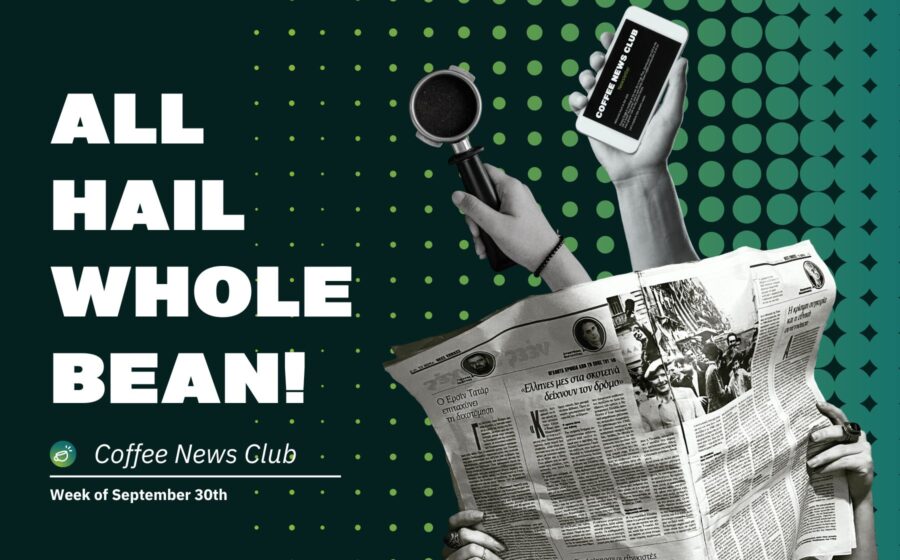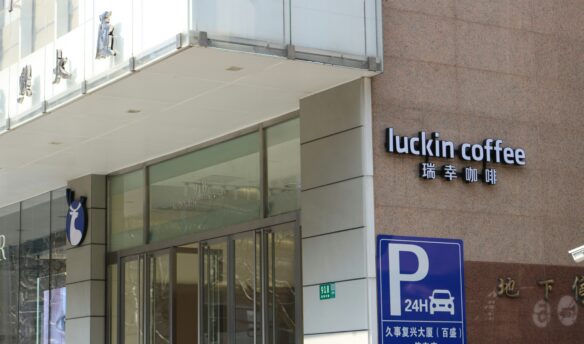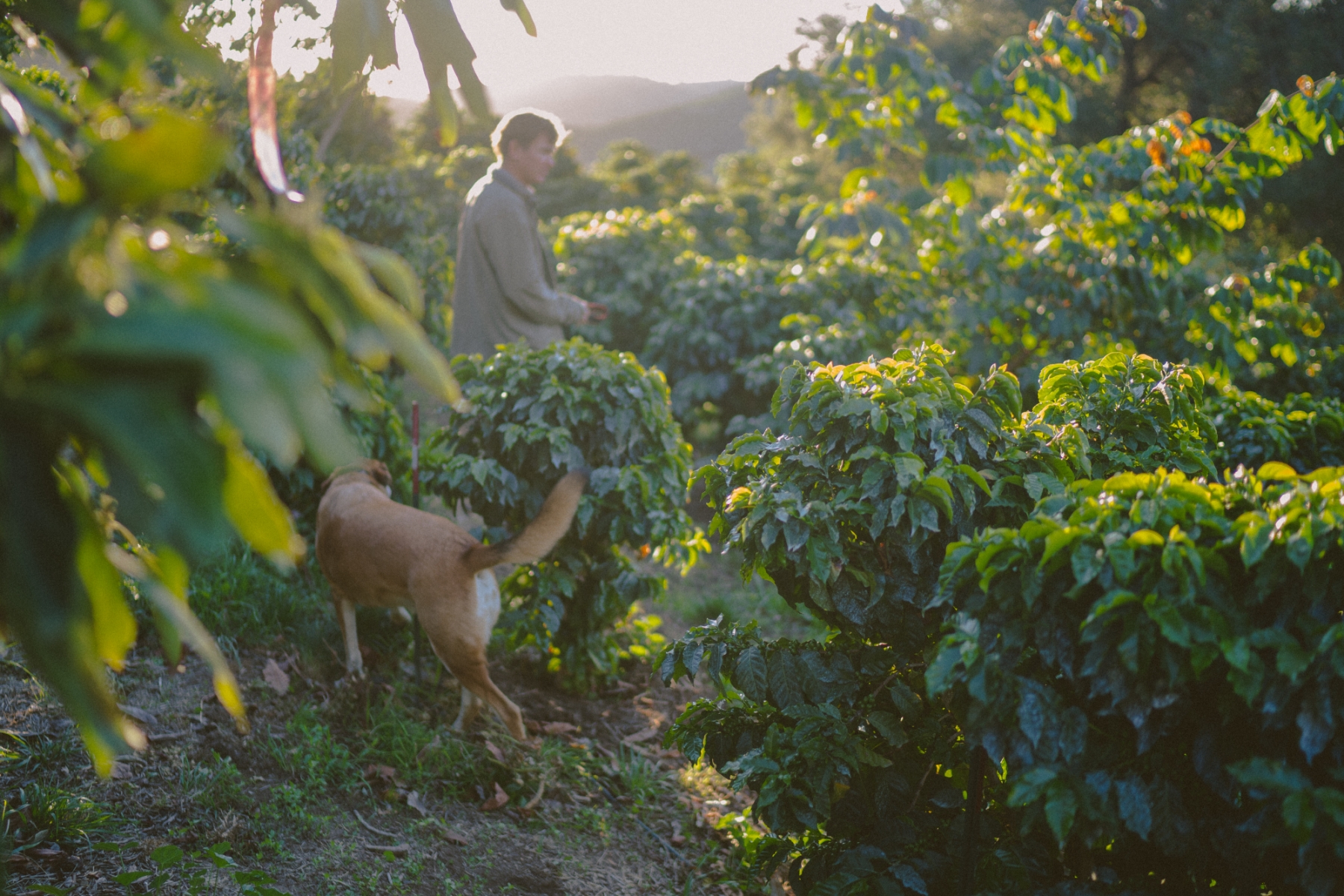All hail whole-bean coffee! Plus, a controversial new coffee labeling law in Hawaii and more calls for the E.U. to delay deforestation legislation.
‘New Hawaii Coffee Law Incites Controversy’ – via SFGate
Hawaiian legislators passed a law mandating that coffee labeled as Kona contain at least 51% beans from the region—and not everyone is happy.
Hawaiian coffee is generally more expensive than coffees from other regions due to higher labor costs in the U.S. and supply constraints—the state has just 7,200 acres of coffee farms (Panama, by contrast, has at least 55,000 acres of coffee farms). To meet demand, many coffee companies—legally—mix Kona beans with cheaper coffee from other regions.
The sale of such coffee, which could contain as little as 10% Kona (the minimum previously required by law), was widespread. In 2019, Hawaiian coffee farmers filed a class-action lawsuit against roasters and some of the biggest retailers in the United States including Costco, Amazon, and Kroger, alleging that coffee being sold as Kona contained only trace amounts (or none at all). Up to 1,000 farmers received $41 million in settlement.
Following the lawsuit, Hawaii passed a law requiring Kona-labeled products to contain at least 51% Kona beans by 2027.
“For too long, we have allowed products that are 90-percent imported coffee beans to use the Kona name and reputation for profit at the expense of farmers,” state Rep. Nicole Lowen, who introduced the bill, told Natasha Bourlin for SFGate. “The percentage of Kona Coffee required for it to be labeled Kona should be 100%, but given that this is the first progress made on this in more than 30 years, it’s a huge win.”
The state conducted a study examining the economic impact of the new law and “found that increasing the percentage would increase demand, increase price and increase tax revenue,” Bourlin wrote.
Not everybody is convinced: some in the industry worry that requiring coffees to contain more Kona beans will increase prices and deter customers from buying the more expensive beans.
“The main question to consider is this: Will the people buying 10% Hawaii blends transition to buying 51% blends? We do not think so,” said Big Island Coffee Roasters co-owner Brandon von Damitz. “Will the people buying 100% transition to also buying 51%? Maybe, but likely not enough to compensate for those that used to buy 10% blends. As a result, sales of Hawaii-grown coffees will likely slow down and supply will inevitably increase. This will most likely lead to lower prices paid to Hawaii coffee farmers.”
Others are more positive. Tommy Greenwell, president and co-owner of Greenwell Farms, sees the new law as a step in the right direction. “Anything like this [law] puts a shock wave through the industry. But these changes are to protect our regions, and we need to protect our regions. Otherwise you just become a name that people slap on whatever they can sell.”
‘International Coffee Organization (ICO) Joins Calls for EUDR Postponement’ – via World Coffee Portal
Vanusia Nogueira, director of the International Coffee Organization (ICO), added to the industry voices calling to postpone the fast-approaching European Union deforestation regulation (EUDR).
Due to come into force for large E.U. companies on December 30, 2024, and for smaller companies six months later, the legislation aims to combat deforestation across a number of commodities including coffee. With just a few months to go until the laws kick in, many coffee industry leaders are pushing back and asking to delay enforcement or for more clarity from the European Commission (E.C.) on compliance requirements.
Nogueira was forthright during an appearance at a coffee summit hosted by the Community of Latin American and Caribbean States in Honduras: “We can’t meet that date; it is not possible,” she said. Nogueira said the deadline was “very ambitious” and that E.U. leaders “might be more open to postponing that date.”
The ICO is the main intergovernmental organization for coffee. Its mission is “to strengthen the global coffee sector and promote its sustainable expansion in a market-based environment for the benefit of all actors in the Global Coffee Value Chain.”
Other coffee organizations and companies have also raised concerns about the EUDR. Campaigners argue that smallholder farmers will struggle to comply with the required documentation the new laws require, and EU-based importers will stop buying coffee from these farmers. Smallholder farmers will be forced to shoulder “unbearable compliance costs,” writes Juan Pablo Solís from Fairtrade International.
It’s not just coffee: many governments and trade groups are calling for a delay in implementation. At least 45 countries have said the laws should be postponed, and the head of the World Trade Organization called on the E.C. to “fundamentally rethink” the legislation.
Despite the pushback, the E.U. looks set to press ahead. In response to a question on possibly delaying, the E.C. wrote that any postponement would require “a legislative change” which “would not achieve our goal to provide legal predictability for operators as soon as possible.”
Many still feel the law is unclear. “It’s baffling that with less than 100 days to go until the EUDR comes into force, the E.U. Commission is dragging its heels and sitting on crucial compliance guidance, creating an information vacuum for companies and countries that want to crack on with their preparedness,” Julian Oram from the advocacy organization Mighty Earth told Feed Navigator.
‘Consumer Demand Study Finds Folks Are Going For Whole Bean Coffee’ – via Sprudge
Thanks to consumer reports like those conducted by the National Coffee Association, we know that coffee is more popular than ever. More people are drinking specialty coffee than ever before, and according to the NCA’s most recent consumer report, people are heading back to cafes and consuming coffee outside the home at rates similar to pre-pandemic levels.
People are also still brewing coffee at home: 81% of those who drank coffee the day before brewed it at home. But what kind of coffee are they brewing? A report by Pattern, a company that helps brands grow their sales on ecommerce platforms, shows that demand for whole-bean coffee has increased 46% over the last year.
The report analyzed shopping data from Amazon throughout 2023 and 2024. Alongside growing interest in whole bean coffee, the report found “elevated interest in grinders, brewing machines, and other coffee products, suggesting an overall shift toward making coffee at home.”
As Zac Cadwalader writes for Sprudge, accessories like storage canisters and scales also saw increases, “lending credence to the idea that more folks are taking their coffee prep more seriously, which generally starts with the switch to whole bean.”
More News
‘World AeroPress Champion 2024 crowned in Portugal’ – via Bean Scene Magazine
‘Soggy Asia Coffee Crop Means World’s Caffeine Fix to Stay Pricey’ – via Bloomberg
‘Inaugural Ethiopian Coffee Origin Festival Announced’ – via Global Coffee Report
‘The Rise of Espresso: A New Feature-Length Documentary By Accademia del Caffè Espresso’ – via Sprudge
‘ProfilePrint Signs AI Analysis Deal with Major Brazilian Coffee Exporters’ – via Daily Coffee News
‘MICE2025 Returns as World’s Destination for Coffee’ – via Global Coffee Report
‘Report: US Out-of-Home Coffee Drinking Highest Since Pre Pandemic’ – via Daily Coffee News
’15 Of Our Favorite Coffee Stories For 15 Years Of Sprudge’ via Sprudge Staff
The Week in Coffee Unionizing
- New Starbucks CEO Brian Niccol said he would “engage constructively” with Starbucks Workers United and “deeply respects” the rights of workers to unionize, according to Reuters. Niccol’s statement was a response to a letter signed by 298 bargaining delegates as talks restart between the company and the union over contract negotiations. “If our partners choose to be represented, I am committed to making sure we engage constructively and in good faith with the union and the partners it represents,” Niccol wrote.
- Workers at coffee vending and distribution company Imperial LLC voted to join Teamsters Local 886 in Tulsa, Oklahoma. In August, workers demanded that the company recognize their right to collectively bargain. In response, according to a Teamsters press release, “management launched an aggressive union-busting campaign, including nearly daily captive audience meetings led by one of the nation’s largest anti-union firms.”
Is Coffee Good For You?
The risk of dementia is higher in people with high blood pressure, but regularly drinking a moderate amount of coffee could lower that risk.
For this study, published in Scientific Reports, researchers in China analyzed data from nearly half a million participants in the U.K. Biobank biomedical database. They found an association between people with hypertension who regularly consume coffee or tea and lower instances of dementia.
Specifically, hypertensive participants who drank between half a cup and a cup of coffee (or 4-5 cups of tea) each day had the lowest risk of developing any form of dementia.
The researchers theorize that coffee and tea’s anti-inflammatory properties could be behind the reduction in dementia risk and could be doubly important for those with high blood pressure. “The active compounds in coffee and tea not only reduce the risk of hypertension (an independent risk factor for dementia) but also inhibit acetylcholinesterase (a key enzyme in the pathogenesis of Alzheimer’s disease), reduce lipid peroxidation and prevent neuronal damage,” the authors wrote.
This study has limitations: the authors note that participants self-report their coffee and tea habits. Furthermore, previous studies have found a link between excessive coffee consumption (as well as specific brewing methods) and an increased risk of dementia. This week’s news proves that moderation is key when it comes to coffee and health.
Beyond the Headlines
‘Adaptogenic Drinks: The Race to Make Your Coffee Do More and More’ by Victoria Turk
‘Designing a Good Coffee Bag Is Harder Than You’d Think’ by Haley Greene








